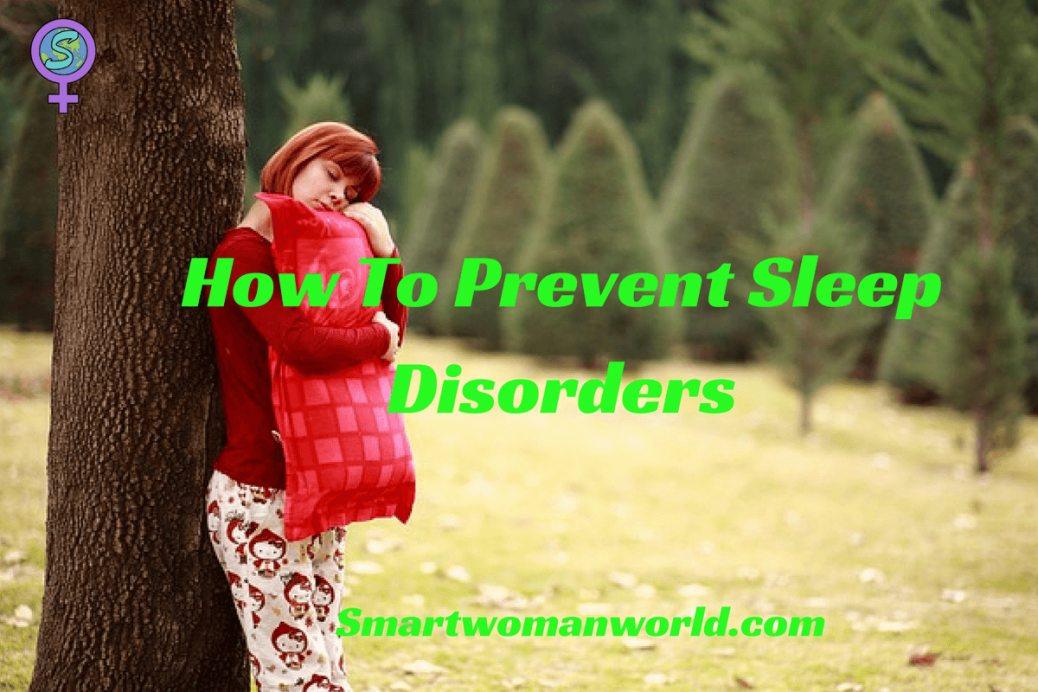Many people today suffer from a disturbed sleep or sleepless nights, which in turn give rise to a lot of diseases. An adult needs at least 8 hours of uninterrupted sleep. As for children, they need about 9 to 10 hours of uninterrupted sleep. Sleep helps in refreshing our brain system to work effectively. If we do not get adequate sleep, then we are prone to stress, restlessness, low immunity and other diseases. In this write-up, we talk about How To Prevent Sleep Disorders.
Some symptoms of sleep disorders are
- Restlessness and tiredness in the day.
- Difficulty in focusing and concentrating.
- Feel like taking a nap during the daytime.
- Getting irritated and not being able to control emotions.
- Always need coffee or other caffeinated beverages to stay awake.
- Response time is very slow.
How To Prevent Sleep Disorders
1. Always have a proper sleep routine.
It is important that you go to bed around the same time every day. By setting a daily habit of sleeping at a particular time helps the natural sleep cycle of your body. This simple habit will go a long way in helping you sleep better. Avoid daytime naps in order to get good sleep at night.
Avoid watching movies, television or discussing stressful topics just before going to sleep as it will have an adverse impact on your sleep.
2. Make your bedroom environment conducive for good sleep.
It is important to make your bedroom environment conducive for good sleep. Choose a comfortable mattress, pillows and blankets as per your comfort. The lighting of the room should not be very bright.
At the same time ensure that the curtains are good enough to keep away the light. You can also play some soft worship music etc., to get better sleep. Minimise noise and avoid extremely high or low temperature in the bedroom.
3. Take a good shower before you go to sleep.
A nice hot water bath will help you to relax and great ready to sleep. Do not drink plenty of water so as to avoid frequent bathroom visits in the night which could disturb your sleep.
4. Do not drink caffeinated drinks before going to sleep.
Avoid drinking caffeinated drinks before going to sleep as they will disrupt your sleep pattern. A glass of warm milk will be better, as milk contains tryptophan which has sleep-inducing properties.
5. Eat properly and exercise regularly.
It is equally important to have a good nutritious diet and exercise regularly for overall good health. Eating a well- balanced meal along with a good exercise regime helps to keep the body fit and healthy. Your body gets tired with the entire day’s activity, especially with the regular exercise. This will help you sleep better in the night. A sedentary lifestyle is one of the major causes of sleep disorders.
6. As you age, you are bound to get less sleep.
As we age, our sleep reduces. The main sleep hormone melatonin is produced in lesser quantities as we age and this increases the chances of sleep disorders. Further, as people age, they are also under a series of medication for heartburn, respiratory problems, blood pressure, arthritis etc., which brings along with it more sleeping difficulties.
7. Get back to sleep even if you get up in the night.
Sometimes you wake up briefly during the night. Try getting back to sleep. Do not try to remain awake. Do not overthink but try to relax and focus on your breathing.
[content-egg module=Amazon template=grid]Some of the major types of sleep disorders
Insomnia
It is the inability to sleep due to stress caused by medication, health issues, worries, depression, anxiety etc. The most important thing is to relax and try to sleep without taking sleeping pills.
Sleep apnea
In this type of sleep disorder, the breathing stops temporarily which leads to frequent awakening. This leads to exhaustion, tiredness and depression. You need to take your doctor’s advice on the same at the earliest.
Sleep disorder due to rotating shifts or even Jet lag.
Our body has a biological clock which regulates our sleeping and waking time cycle. Light is one of the major things that influence our sleep cycle. Therefore in the night when there is less light our brain releases melatonin, which makes us sleepy. While in the morning when there is more light, the brain tells the body to wake up.
When people work in shifts they sleep at inconvenient times against their body clock. This leads to sleep disorders, depression, incomplete sleep, tiredness, and exhaustion.
Try to regulate your sleep-wake cycle. Do not change shifts frequently. Try taking later shifts than earlier shifts, as it is easier to adjust the time on a forward basis.
Jet lag is a temporary disruption of your sleep when you are travelling in different time zones.
Finally, good sleep is an essential part of a healthy lifestyle. A good sleep will help you to stay away from many diseases. Many doctors advise proper and sound sleep to stay fit and healthy. Many times people do not take adequate precautions or treatment and so many sleep disorders get unrecognized and lead to many health issues. Today make an effort to get good sleep in order to have a healthy life.
Hope you enjoyed this article How To Prevent Sleep Disorders.
Tags: How To Prevent Sleep Disorders, insomnia, jet lag, Sleep Apnea, Sleep Disorders



